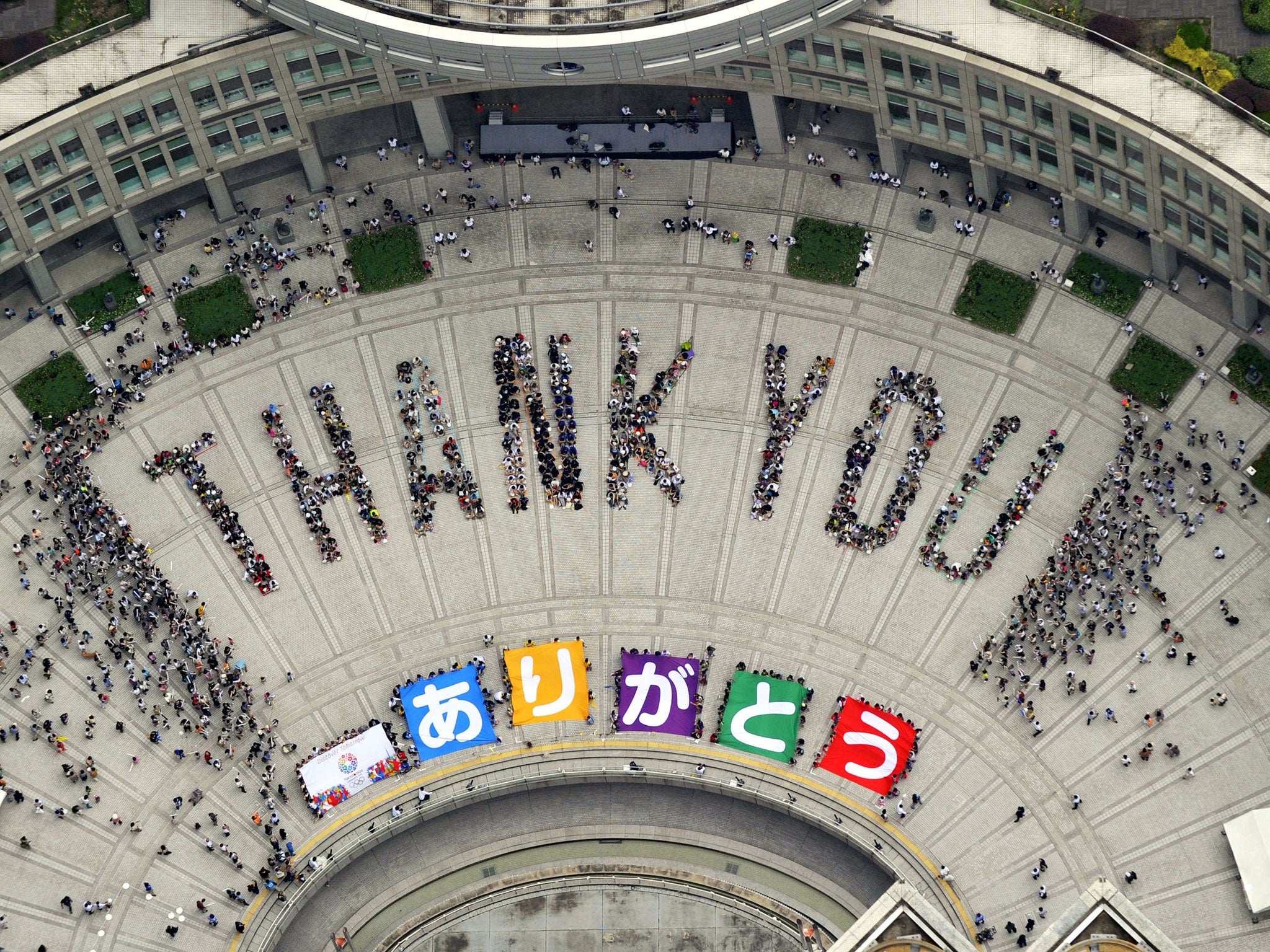Japan celebrates 2020 Olympics bid win – but is it safe and ready?
Tokyo celebrates victory after PM reassures IOC that radiation from nuclear plants is no longer a threat

Your support helps us to tell the story
From reproductive rights to climate change to Big Tech, The Independent is on the ground when the story is developing. Whether it's investigating the financials of Elon Musk's pro-Trump PAC or producing our latest documentary, 'The A Word', which shines a light on the American women fighting for reproductive rights, we know how important it is to parse out the facts from the messaging.
At such a critical moment in US history, we need reporters on the ground. Your donation allows us to keep sending journalists to speak to both sides of the story.
The Independent is trusted by Americans across the entire political spectrum. And unlike many other quality news outlets, we choose not to lock Americans out of our reporting and analysis with paywalls. We believe quality journalism should be available to everyone, paid for by those who can afford it.
Your support makes all the difference.Thousands of Tokyo residents face a bleary-eyed start to the week after weekend parties to celebrate the news that the city will host the 2020 Summer Olympics for the second time.
The International Olympic Committee (IOC) unanimously picked Tokyo over rivals Madrid and Istanbul on Saturday, after a late assurance by Japanese Prime Minister Shinzo Abe that the capital is safe from radiation.
A string of problems at the Fukushima Daiichi nuclear plant, 230km north-east of the city, put Tokyo’s Olympic organisers on the defensive, and forced Mr Abe last week to find $470m (£300m) to plug the plant’s radioactive leaks.
The world’s top athletes will be safe, he pledged before the IOC’s final vote on Saturday in Buenos Aires.
But many have expressed concerns that a litany of crises faced by the Japanese government makes it entirely unsuitable to host such a global event. Experts have blamed Japan’s government and nuclear regulators for taking their eye off the Fukushima clean-up since Mr Abe returned to power late last year. The government wants to restart Japan’s 50 idling commercial nuclear reactors, despite criticism that the crisis at the Daiichi plant is far from over.
“It is immoral to invite the Olympic Games to Japan where the health environment cannot be secured,” said Mitsuhei Murata, a former Japanese ambassador to Switzerland. He called for Tokyo’s bid to be withdrawn until what he called Japan’s “lack of crisis” is remedied.
Tokyo won the bid with a presentation that focused on its deep pockets, state-of-the-art sports facilities and sleek public transport system. But the IOC decision was also clearly a vote for stability in uncertain times, amid the deep political divisions in Turkey and runaway unemployment in Spain.
The decision was greeted ecstatically in Tokyo, where thousands of people stayed up on Saturday night watching live relays from Buenos Aires. At Komazawa Olympic Park, which hosted the 1964 Games, many wept and hugged friends as the news was announced.
Hundreds of people gathered outside Tokyo’s government buildings today to spell out the words “arigato” – “thank you” in Japanese. “It’s an amazing feeling,” said Emi Ishii, an office worker in central Tokyo. “We’ve been waiting for such a long time for some good news.”
Tokyo’s government says the event will help Japan recover from the 2011 tsunami/earthquake disaster, which left much of the country’s north-east coast in ruins and triggered the Fukushima nuclear meltdown. “Japan needs hope and dreams,” Mr Abe said after the IOC announcement.
Achieving those dreams, however, will not come cheap. Tokyo has promised to build 22 of the 37 Olympic venues from scratch, and spend $1bn refurbishing its 1964 Olympic stadium. The total estimated price tag Y409 bn (£2.6bn), which the government hopes to offset with a Y3trn Olympic windfall. That assessment is almost certainly optimistic. Every Games since 1960 has overrun its budget. The budget issue is likely to loom large: Japan’s public debt surpassed Y1 quadrillion last month, equal to the economies of Great Britain, Germany and France combined.
Public indifference and fear of incurring more debt helped sink Tokyo’s bid for the 2016 Olympics four years ago. It took the 11 March triple disaster to rekindle Tokyo’s passion for the Olympics. The government will be hoping that passion does not fade before 2020.
Join our commenting forum
Join thought-provoking conversations, follow other Independent readers and see their replies
Comments